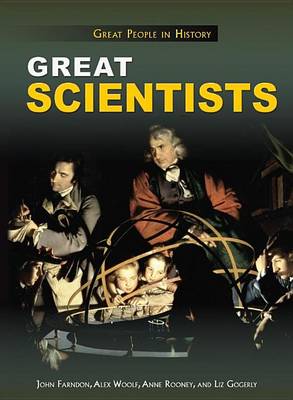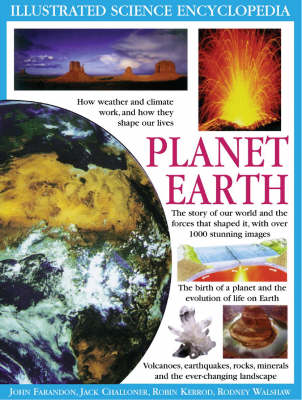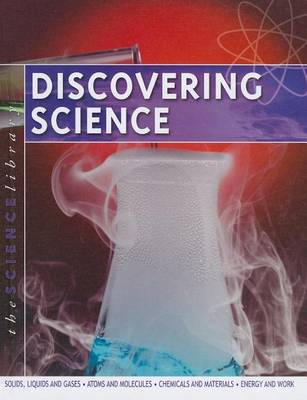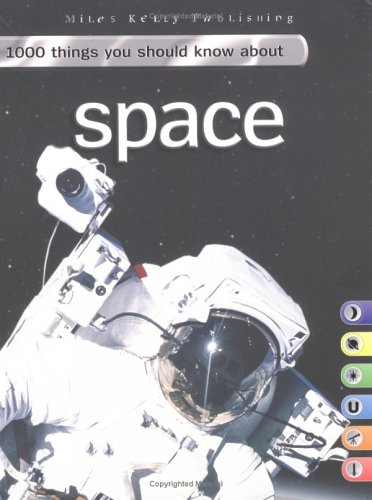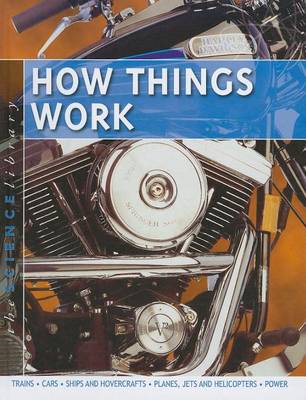Science Library (Mason Crest Publishers)
5 total works
Backed up by detailed images, photographs and diagrams, the books in this series introduce various aspects of the world of science. Each book uses grid co-ordinates to help readers navigate around the featured topic, with many facts and statistics, as well as website links for finding out more.
The Planet Earth
by John Farndon, Jack Challoner, Robin Kerrod, and Rodney Walshaw
Published 1 July 2000
Photographs and text work together to tell the amazing story of our planet. You will discover exactly how much life on Earth depends upon a thin protective blanket of atmosphere, meet a deepwater fish that first appeared 400 million years ago, and understand the issues that affect the future of our planet. Topics from rocks and minerals to wild weather are covered, with fact boxes and colour diagrams to highlight important information. Over 60 fun science experiments are included, such as splitting light into a rainbow, making a volcano eruption or growing crystals.
Key subjects areas are presented in a fantastic easy to use format. Each book contains 1000 bulletpoints on 100 topics, accompanied by detailed artwork and photographs and fascinating information panels. The informative and comprehensive text is written and consulted by experts, and allows readers to explore subjects in depth. "1000 Facts" are ideal for use at home or school, and support key stages 2 and 3.
Backed up by detailed images, photographs and diagrams, the books in this series introduce various aspects of the world of science. Each book uses grid co-ordinates to help readers navigate around the featured topic, with many facts and statistics, as well as website links for finding out more.
